Knowledge Hub
Growing in relation with the land: Experiential learning of Root and Regenerate Urban farms
2023
Author(s): Rozanski C,Gavin M
This paper discusses the benefits and limitations of Small Plot Intensive Farming methods and urban land-sharing strategies, as well as the viability of land-based urban agriculture in a rapidly changing socio-ecological climate and also demonstrates the potential for transcending siloed approaches to knowledge-making vis-Ă -vis experiential learning partnerships between graduate student researchers, farmers, and agricultural organizations.
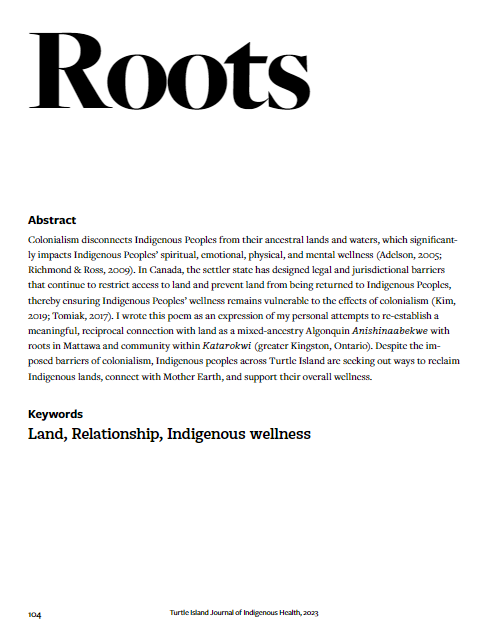
This peom was written as an expression of my personal attempts to re-establish a meaningful, reciprocal connection with Land as a mixed-ancestry Algonquin Anishinaabe ikwe with roots in Mattawa/North Bay and community within Katarokwi. Despite the imposed barriers of colonialism, Indigenous Peoples across Turtle Island are seeking out ways to reclaim Indigenous lands, connect with Mother Earth, and support their overall wellness
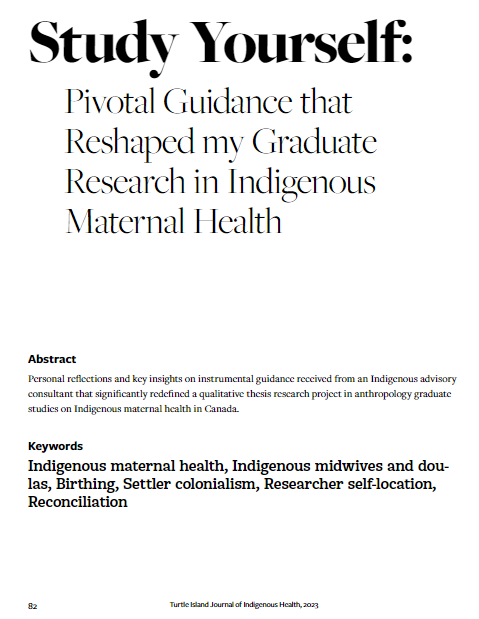
Study Yourself: Pivotal Guidance that Reshaped my Graduate Research in Indigenous Maternal Health
2023
Author(s): Tomkins S
The term “Indigenous” was used to reflect shared maternal health experiences, which reveal the continued marginalization of First Nations, Inuit, and Métis women and birthing parents by settler colonial systems in Canada, the resistance against this oppression, and the efforts to restore safety and autonomy in Indigenous maternal health.
Transforming the Global Food System for Human Health and Resilience
2023
Author(s): World Economic Forum, Accenture
This report advocates for a significant shift in strategy for global food system transformation towards a focus on both human and planetary health.
Indigenous Knowledge
2021
Publisher/Organisation: Center of Knowledge Management, Universitas Padjadjaran (Unpad), Unpad Press
Indigenous Knowledge journal publishes empirical research reports (qualitative, quantitative, or mixed methods), systematic reviews, program evaluations, and case reports focused on communities in cultural area.
Indilinga: African Journal of Indigenous Knowledge Systems
2004
Publisher/Organisation: AJOL (African Journal Online)
The journal has been motivated by the need for a dependable expression for critical and analytical writing on issues related to production, dissemination and recognition of Indigenous Knowledge Systems.
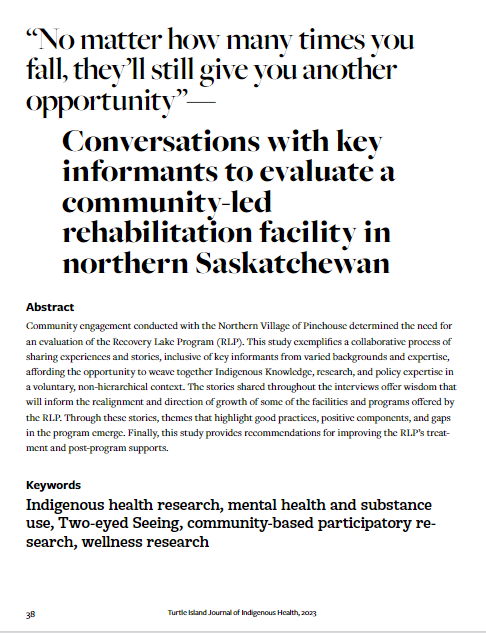
“No matter how many times you fall, they’ll still give you another opportunity” – Conversations with Key Informants to Evaluate a Community-led Rehabilitation Facility in Northern Saskatchewan
2023
Author(s): Froehlich J, Smith J, Iyer S, Ametepee K, Smith K, Foshion V, Smith W, Mease A, King A, King M
The study exemplifies a collaborative process of sharing experiences and stories, inclusive of key informants from varied backgrounds and expertise, affording the opportunity to weave together Indigenous knowledge, research and policy expertise in a voluntary, non-hierarchical context.
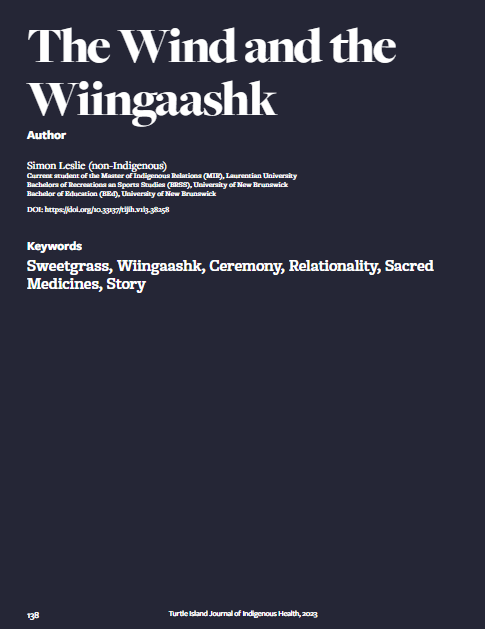
With a focus on kindness and healing, the story and the subsequent poem look to a future that ventures to care for the earth and for others in a holistic way.
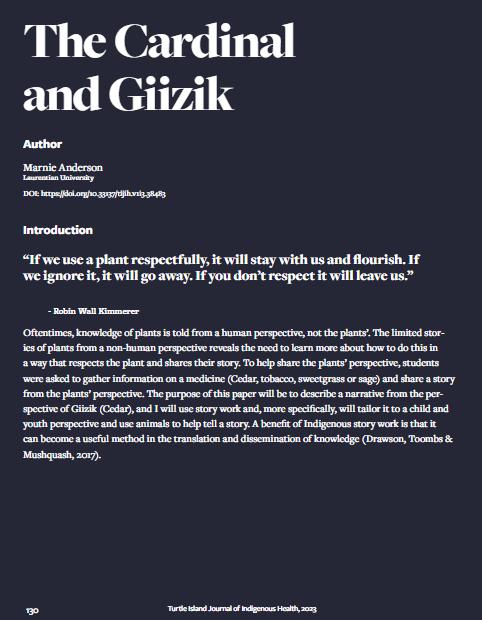
The purpose of this paper will be to describe a narrative from the perspective of Giizik (Cedar) and I will use story work and more specifically will tailor it to a child and youth perspective. A benefit of Indigenous story work is it can become a useful method in the translation and dissemination of knowledge (Drawson, Toombs & Mushquash, 2017)

Biodiversity Credits: Demand Analysis and Market Outlook
2023
Author(s): World Economic Forum
The report aims to capture the potential for developing the market for biodiversity credits, without being too prescriptive about how this potential might be realized.



